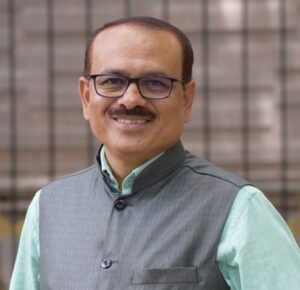“ORDI serves as a bridging platform to connect scientists with relevant patients to further basic and translational research”
April 01, 2024 | Monday | Views | By Shivani Thakar
The Founder of the Organisation for Rare Diseases in India (ORDI), Prasanna Kumar Shirole, at the announcement of the 9th Edition of "Racefor7", a 7-kilometre marathon, intends to raise awareness about 7000 rare diseases known or reported worldwide. He’s keen to provide patients and their families access to medical treatment and resources. Coinciding with World Rare Diseases Day celebrated on the last day of February, an annual marathon held across 15 cities, Shirole shared with BioSpectrum, the measures and initiatives ORDI has undertaken in addressing rare disease management in India and the goals of ORDI.
Why do you hold this annual marathon event?
An annual local event, such as this ‘Racefor7’ marathon, happening in fifteen different cities across India this year, is important for ORDI’s initiative and will contribute to spreading awareness. The annual event is also the means for us to raise funds for ORDI. It also conveys a message that patients suffering from rare diseases and their families are not alone in their fight, showcasing community support through such a local public event and also tackling stigma. Through our local and nationwide public events, ORDI also aims to be a platform for sending the message to the government as well as to national and global pharmaceutical companies to look towards the Indian market as having potential for investment in rare disease therapies.
What infrastructure is in place at ORDI to increase awareness about rare diseases among medical practitioners?
When ORDI was first started, a considerable challenge was increasing awareness about the existence and diagnosis of rare genetic disorders and diseases among doctors in the first place. Presently, ORDI works with more than 500 hospitals and doctors in India. ORDI serves as the focal point for arranging and conducting webinars and conferences by partnering with institutions like the Indian Academy of Paediatrics (IAP) and the National Neonatal Forum (NNF), to facilitate not only knowledge exchange but also convey the message about real-time issues to these medical experts.
ORDI has also set up a helpline for doctors so that doctors across the country can connect with information about possible case(s) or rare diseases and seek further assistance needed in correct diagnosis and/or treatment options. ORDI serves as the platform to connect them to required services depending upon their location in the country. ORDI volunteers visit different locations, conduct clinical specialities and start associating with the local doctors so that patients do not have to travel too much to visit the relevant medical facility. The doctors in such areas can then network with specialists in other areas, like urban hubs, without the patient having to go there.
What are the goals for ORDI in the next few years?
One of the future targets for ORDI will be to work towards getting the state governments on board with its initiatives and for implementation of various policies, as public health and hospitals are primarily state subjects.
ORDI works on a 360-degree approach for rare diseases: One aim is increased advocacy to policymakers, hospitals, researchers, and genetic counsellors. We also work with different funding agencies and clinical trial agencies/companies across India to draw their attention to the rare diseases niche. We also aim to approach and work with pharmaceutical companies to bring overseas drugs for rare diseases to bring those drugs into the Indian market. ORDI serves as a bridging platform to connect scientists to relevant patients to further basic and translational research. In that capacity, ORDI has a connection with ICMR.
Also, in the next two years, another important aim for ORDI is to establish a “Who After Me” facility for rare disease patients and their families. Herein, we plan to establish a facility as a one-stop solution to provide physical support and caretakers, medical support, and ambulance services under one destination, to make it easy and cost-effective for these patients.
Shivani Thakar
shivani.thakar@biospectrumindia.com









